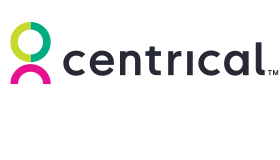Coaching isn’t just for athletes – it is also a key element in call centre success. But supervisors often have large teams, with differing skills, strengths, and weaknesses.
Additionally, some teams might be remote, which can make it tough to build rapport and trust. This article will dive into different call centre techniques and methods, including call centre coaching basics and benefits, common challenges, and some key takeaways.
Benefits of Call Centre Coaching
There are many benefits of call centre coaching (which are amplified with the right call centre coaching techniques and methods).
Enhanced agent performance is one key benefit. Call centre coaching helps to empower agents and develop and refine their skills, leading to overall improved performance.
Call centre coaching also boosts morale. When coaches provide guidance, support, and opportunities for skill development, this enhances agent job satisfaction and leads to higher morale and reduced attrition rates.
Other benefits that stem from improved agent performance and morale are consistency in service quality, better alignment with organizational goals and compliance requirements, better quality assurance scores, and ultimately, improved customer satisfaction and loyalty.
Finally, call centre coaching encourages a culture of continuous improvement, where agents and supervisors work together to refine processes and best practices.
6 Essential Call Centre Coaching Techniques With Examples
There are many call centre coaching techniques – below are a few of the most common:
One-on-One Coaching
Individual coaching sessions where supervisors provide personalized feedback and guidance to agents.
( Example: a supervisor reviews a recorded customer interaction with an agent, highlighting where the agent excelled and areas needing improvement. They discuss strategies for handling challenging customer situations more effectively.)
Role-Playing
Agents engage in role-playing scenarios to practice handling different customer situations and challenges.
( Example: Two agents simulate a difficult customer call, with one playing the customer and the other playing the agent. The supervisor observes and provides feedback on the agent’s communication, problem-solving, and conflict-resolution skills.)
Self-Assessment and Goal Setting
Agents evaluate their own performance and set improvement goals in collaboration with supervisors.
( Example: An agent self-assesses by rating their performance on key metrics, such as call handling time and first-call resolution. They then work with their supervisor to create a development plan to meet specific goals.)
Side-by-Side Coaching
Supervisors sit alongside agents during customer interactions, providing real-time guidance.
( Example: A supervisor listens in on a live call with an agent and sends helpful suggestions via instant messaging. The agent can adjust their approach based on the real-time feedback.)
Peer Coaching
Experienced agents coach and mentor newer colleagues.
( Example: A senior agent helps a new team member learn how to navigate the call centre’s knowledge base to address common customer inquiries quickly and effectively. Peer coaching can include sharing best practices and offering support.)
Gamification and Competitions
Turning coaching into a friendly competition or game to motivate agents.
( Example: Creating a competition where agents earn points for meeting specific performance targets, and the agent with the highest score at the end of the month receives recognition or rewards.)
6 Practical Call Centre Coaching Methods With Examples
We’ve shared some different call centre coaching techniques. Below are a few tried-and-true call centre coaching methods to help you and your team make the most of each session:
Be Prepared
The more prepared the coach, the more meaningful and effective the discussion. Make time to gather and review metrics, talking points, recorded interactions, and a potential improvement goal/plan before the session.
Be Specific
Just telling agents they need to improve isn’t going to get results. Make your expectations clear. Instead of saying that the agent must improve their average hold time, it is more helpful to say that the agent should try for an x% improvement over a specific timeframe, and determine what training is needed to help make that improvement happen.
Layer the Positives and Opportunities
When coaching agents, don’t just focus on what is wrong and needs improvement – also highlight what the agent is doing right.
Start off on a positive note, citing something the agent does well and from there, go to the negative aspect, following up with how this area can be improved. We also recommend taking time to simply congratulate agents for improved performance, or just for a job well done.
Keep It One-to-One
Ideally, coaching sessions should be kept 1-1 to help avoid any self-consciousness on the part of the agent and enable a candid, open discussion.
However, a team coaching session is fine for general, widespread issues (but stick to the overall issue and don’t call out individuals.)
Engage the Agent
Try to find the root cause behind poor performance. Take a human-centric approach and ask about how the agent is doing as a person, how their workload is, or if there is anything they find challenging.
Consider inquiring about any non-work issues that you could help with (but don’t push if the agent is reluctant to share).
Be Consistent
Inconsistency in call centre coaching can lead to inconsistency in performance. While supervisors will have different styles, and agents will respond to different methods, having standard elements (clear expectations, specific goals, engaging agents, personalizing the sessions, etc.) will go a long way.
Additionally, we recommend that supervisors collaborate and share their own best practices and tips for better, more productive sessions.
Key Metrics for Monitoring
There are many areas where call centre coaching should focus. Below are some of the most monitored metrics that can improve from call centre coaching:
- Average Handling Time (AHT)
- First-Call Resolution (FCR)
- Customer Satisfaction (CSAT)
- Net Promoter Score (NPS)
- Adherence to Schedule
- Service Level (SL)
- Abandonment Rate
- Occupancy Rate
- Wrap-Up Time
- Average Speed of Answer (ASA)
- Emotional Intelligence
Overcoming Common Challenges
Like everything else, call centre coaching and team management comes with its own set of challenges. Below are a few common challenges, and some solutions to help overcome them:
Challenge: Time Constraints
With large teams, a long to-do list, and low bandwidth, it can be tough for supervisors to schedule enough time for one-to-one coaching sessions.
One solution is to implement software that delivers AI-powered coaching insights to help supervisors more easily identify opportunities and prioritize who to coach and who to recognize.
Challenge: Continuous Improvement
When initial coaching goals are achieved, it can be hard to keep the momentum going. This is where a culture of continuous improvement comes in.
Encourage ongoing learning and development by recommending training sessions for upskilling, cross-skilling, and career development. Also, celebrate individual and team achievements to reinforce the importance of continuous improvement.
Challenge: Monitoring Progress
Agent performance data may or may not be readily accessible – and it might not readily reflect the entire story.
Look for a platform that provides quick access to real-time employee performance data (including quality assurance scores) from across your operational systems. This helps cut down on admin time and helps managers conduct just-in-time coaching sessions.
Challenge: Maintaining Morale and Engagement
Coaching is often associated with poor performance and can cause anxiety and a general feeling of low morale. Address this by coaching not just for the negative – be sure to schedule coaching sessions to highlight what agents are doing well, and coach to help them keep up the great work.
We also recommend making the coaching sessions interactive and engaging, with agents contributing their insights and experiences to the conversations. No matter the topic, connect coaching goals to personal and professional development to enhance motivation.
Summary and Key Takeaways
Call centre coaching is an important element of any call centre’s operations, with a variety of call centre coaching methods and techniques to choose from for the right approach. Below are a few key takeaways:
Call centre coaching benefits include more knowledgeable and empowered agents, consistency in service delivery, increased morale, and improved employee performance.
There are many call centre coaching techniques, with common approaches that include role-playing, one-on-one coaching, self-assessments and goal setting, side-by-side coaching, gamified competitions, and peer coaching.
Recommended call centre coaching methods include being specific about expectations and improvement, engaging the agent during sessions, being consistent, and highlighting the positive aspects of the agent’s performance.
Call centre coaching has its own set of challenges (which can be remedied with the right approach and technology) such as time restraints, maintaining morale and engagement, and creating a culture of continuous learning.
This blog post has been re-published by kind permission of Centrical – View the Original Article
For more information about Centrical - visit the Centrical Website
Call Centre Helper is not responsible for the content of these guest blog posts. The opinions expressed in this article are those of the author, and do not necessarily reflect those of Call Centre Helper.
Author: Centrical
Published On: 18th Dec 2023 - Last modified: 9th Dec 2024
Read more about - Guest Blogs, Centrical






 Centrical provides a real-time performance management, microlearning, gamification, coaching, and voice of the employee platform for frontline teams. The solution inspires and personally guides employee success and growth by making every moment actionable.
Centrical provides a real-time performance management, microlearning, gamification, coaching, and voice of the employee platform for frontline teams. The solution inspires and personally guides employee success and growth by making every moment actionable. 








